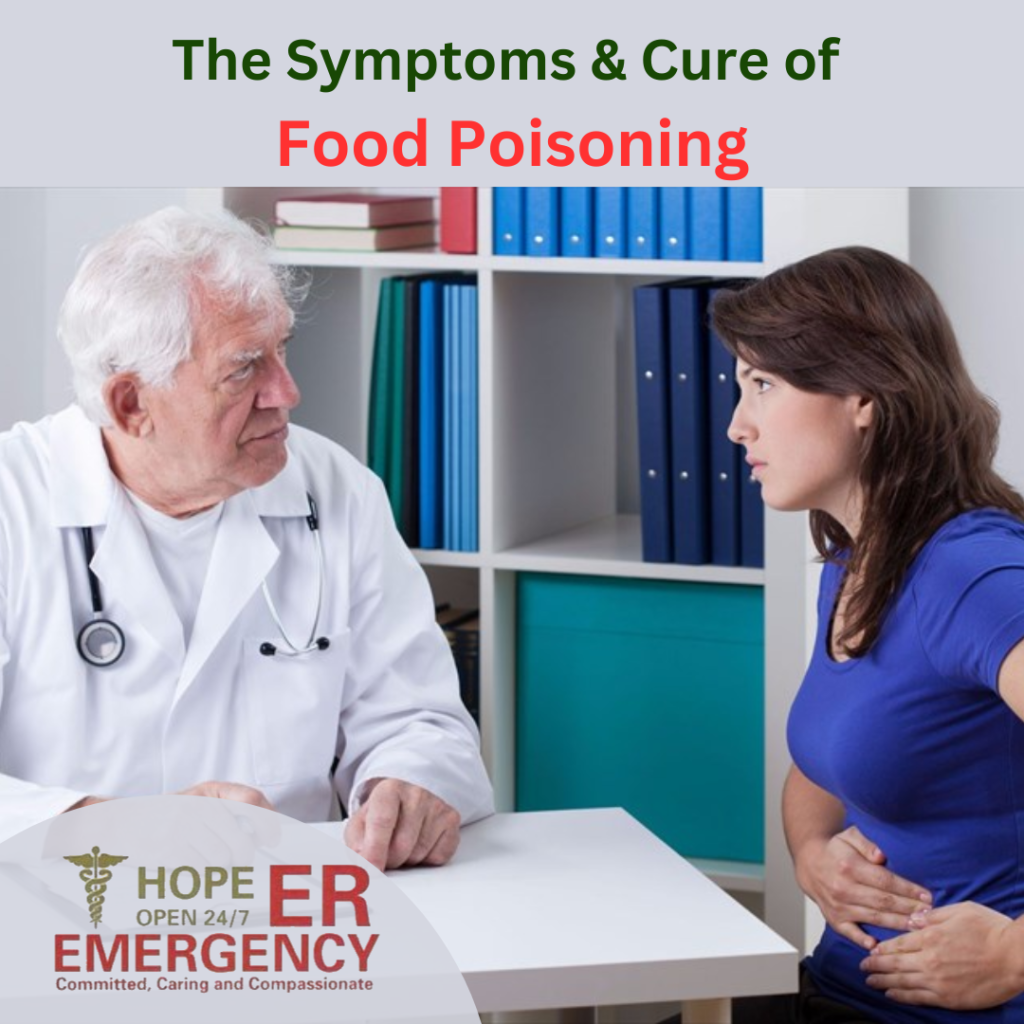Food poisoning is a common illness caused by consuming contaminated food or beverages. It can lead to a range of symptoms, from mild discomfort to severe illness. The specific symptoms and duration of food poisoning can vary depending on the type of contaminant and the individual’s overall health. Here are the typical symptoms and some general guidelines for treatment:
Common Symptoms of Food Poisoning:
Nausea: Feeling like you’re about to vomit.
Vomiting: Forceful expulsion of stomach contents.
Diarrhea: Frequent, loose, watery bowel movements.
Abdominal pain and cramps: Discomfort or cramping in the stomach area.
Fever: An elevated body temperature may be present.
Muscle aches: General body discomfort.
Fatigue: Feeling tired or weak.
Causes of Food Poisoning:
Food poisoning can be caused by various pathogens (bacteria, viruses, parasites) or chemical contaminants. Common culprits include Salmonella, E. coli, Campylobacter, Listeria, Norovirus, and toxins produced by certain bacteria.
Treatment and Self-Care for Food Poisoning:
Hydration: The most crucial aspect of treatment is staying well-hydrated to replace fluids lost through vomiting and diarrhea. Drink clear fluids like water, oral rehydration solutions, and clear broths. Avoid alcohol and caffeinated beverages as they can dehydrate you further.
Rest: Rest is important to help your body recover from the illness.
Dietary Changes: Initially, it may be best to avoid solid foods until vomiting and diarrhea subside. Then, start with bland, easy-to-digest foods like rice, plain crackers, and plain yogurt.
Avoid Dairy and Fatty Foods: These can be harder to digest during recovery.
Over-the-counter Medications: You can consider over-the-counter anti-diarrheal medications like loperamide (Imodium) to alleviate diarrhea. However, these should be used with caution and only if advised by a healthcare professional, as they may prolong the infection in some cases.
Medical Attention: Seek medical attention if:
- Symptoms are severe or persistent.
- You have bloody stools.
- You have a high fever (above 101.5°F or 38.6°C).
- You become severely dehydrated (dry mouth, dark urine, dizziness, rapid heartbeat).
- Preventing Food Poisoning:
- Prevention is crucial to avoid food poisoning:
- Practice good hand hygiene.
- Cook food thoroughly, especially meats and poultry.
- Store food at proper temperatures (refrigerate perishables promptly).
- Avoid cross-contamination (use separate cutting boards for raw and cooked foods).
- Be cautious with raw seafood and eggs.
- Wash fruits and vegetables thoroughly.
- Avoid consuming undercooked or raw meats and fish.
- Pay attention to food expiration dates.
- Avoid eating at places with poor hygiene practices.
- Be mindful of food recalls and advisories.
Food poisoning can range from mild discomfort to a serious health threat, so it’s important to take it seriously and seek medical attention when necessary. If you suspect you have food poisoning, it’s a good idea to consult a healthcare professional for proper diagnosis and guidance on treatment.
If you feel that the symptoms of food poisoning are becoming worse with time, immediately rush to a reliable emergency room near you in Lufkin, Texas. Hope ER is always there for you when you need us the most. Hope ER is located at 2111 East Denman Avenue, Lufkin TX 7591, and can be reached @ 936-899-7243. Our website is www.hopeer911.com
